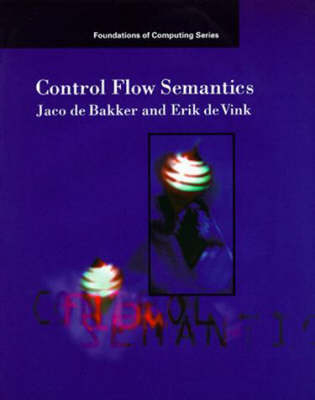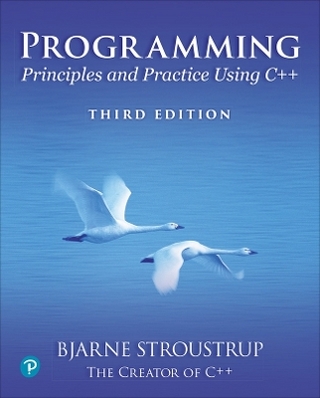
Control Flow Semantics
MIT Press (Verlag)
978-0-262-04154-6 (ISBN)
- Keine Verlagsinformationen verfügbar
- Artikel merken
Control Flow Semantics presents a unified, formal treatment of the semantics of a wide spectrum of control flow notions as found in sequential, concurrent, logic, object-oriented, and functional programming languages. Whereas in more traditional approaches one focuses on input/output behavior, in this work equal attention is devoted to finite and infinite computations, the latter motivated by the growing importance of reactive systems. Knowledge of the comparative semantics of control structures is critical for the designers of programming languages, and it is difficult to choose from today's bewildering variety of control flow concepts (the ways in which a program specifies the successive steps to be taken during execution). Encyclopedic in scope, Control Flow Semantics provides comprehensive coverage of these concepts, developing operational and denotational models for control flow in 27 languages. In all cases, precise statements are given relating these models. A rich body of semantic definitional techniques is presented, including (labeled) transition systems, higher-order definitions, resumptions and continuations, linear or sequence-based models, and models specified by domain equations. Moreover, both symbol-based or schematic languages-prevalent in the study of concurrency-and state-based or interpreted languages are considered. The book is founded on a unifying mathematical basis of metric structures, allowing the full modeling of infinite behavior, as well as the exploitation of some classical results, such as Banach's fixed point theorem. Perspectives on further topics, such as full abstractness, noninterleaving semantics for parallelism, and second-order programming are also included. Foundations of Computing series
J. W. de Bakker is Professor at the Centrum voor Wiskinde en Informatica in Amsterdam. Erik de Vink is Professor in the Department of Mathematics and Computer Science at Eindhoven University of Technology.
Part 1 Fundamentals: recursion and iteration - recursion - transition systems and higher-order definitions, interation - a nonuniform language with continuation semantics, exercises, bibliographical notes; nondeterminacy - metric hyperspaces, nondeterministic choice - the compact power-domain, exercises, bibliographical notes; variations - guarded commands - D without higher order, goto statements - systems of continuations, exercises, bibliographical notes. Part 2 Linear models: uniform parallelism - parallel com-position - introduction of "II", process creation - parallel resumptions, exercises, bibliographical notes; unbounded non-determinism - image-finite transition systems - closed replaces compact, random assignment - the closed powerdomain, fair merge - enforcing image-finiteness, exercises, biblio-graphical notes; locality - blocks - environments for in-dividual variables, function procedures with parameters called-by-value - statement and expression prolongations, exercises, bibliographical notes; nonuniform parallelism - parallel composition with shared variables - relating O and D through abstraction, concurrent evaluation of expressions - many sorted transition systems, exercises, bibliographical notes; recursion revisited - the u-calculus Lu-a declaration free formalism, procedure environments -D without higher order, Lcf and Lu compared - simultaneous versus iterated fixed points, three semantics for Lcf - fixed points at different levels, exercises, bibliographical notes; nested resumptions - backtracking - success and failure pro-longations, the fork statement - contractiveness through hiatons, exercises, bibliographical notes. Part 3 Models based on domain equations: domain equations and bisimulation - domain equations, nonexpansive and contractive functors, bisimulation, exercises, bibliographical notes; branching domains at work - deadlock - a branching domain for D, synchronisation - refining the parallel composition, exercises, bibliographical notes; extensions of nonuniform parallelism - suspension and the await statement - a non-uniform domain equation, communication with value passing - a nonuniform version of Lsyn. (Part contents).
| Reihe/Serie | The MIT Press |
|---|---|
| Verlagsort | Cambridge, Mass. |
| Sprache | englisch |
| Maße | 178 x 229 mm |
| Gewicht | 1021 g |
| Themenwelt | Mathematik / Informatik ► Informatik ► Programmiersprachen / -werkzeuge |
| Informatik ► Software Entwicklung ► Objektorientierung | |
| ISBN-10 | 0-262-04154-5 / 0262041545 |
| ISBN-13 | 978-0-262-04154-6 / 9780262041546 |
| Zustand | Neuware |
| Haben Sie eine Frage zum Produkt? |
aus dem Bereich


